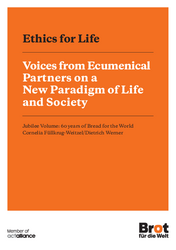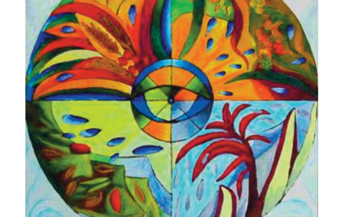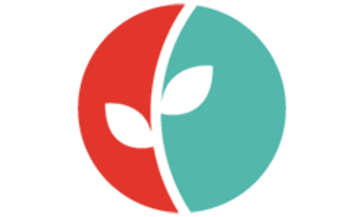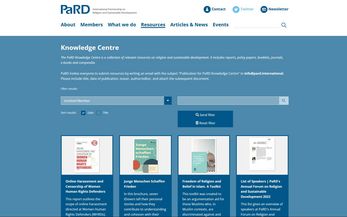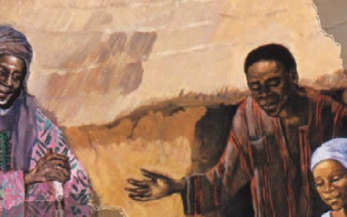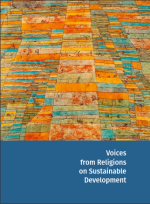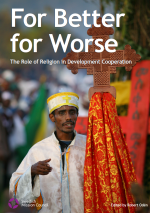International Handbook on Creation Care and Eco-Diakonia released. ... you can order the book now
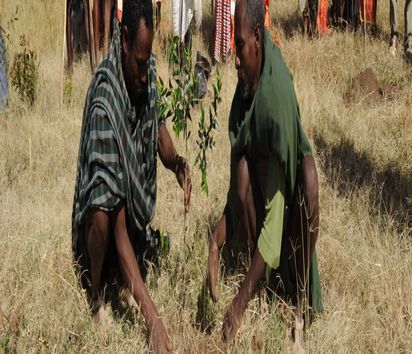
Religion and Development
Brot für die Welt (Bread for the World) is part of the global ecumenical movement and committed to enhance ecumenical collaboration on justice, peace and sustainability between churches of different denominational traditions. Our work is rooted in the Christian faith which sees this world as God’s creation and every vulnerable and marginalised human being as partner in God’s love, inspired with the hope for a world transformed by God’s grace.
While being supported by all churches in Germany, we collaborate with churches, church related agencies and civil society organisations in many countries of the world. We exercise our responsibility and contribution to ecumenical Diakonia in global ecumenical networks such as ACT Alliance and others.
Churches as Crucial Factors
Brot für die Welt has from its very beginnings shared the conviction that faith-based actors, particularly Christian churches, have a special role in processes of social transformation, in humanitarian assistance and in development cooperation. Churches are often present in the most remote rural places which are not reached by state actors or secular NGOs. Churches bring moral and ethical resources and a particular commitment to issues of human dignity, to an integral understanding of health, healing, education and ecological integrity. Churches in many African regions have been and continue to be major providers in health care and educational programmes.
Local congregations provide social cohesion, unique systems of sharing and mutual support and can provide life-saving support networks in crisis situations and catastrophes. Churches provide values, hope and motivational energies in situations which long for social change. Church -related actors have contributed with counselling, trauma healing and local emergency alleviation to coping mechanisms with major social or natural calamities. They strengthen a sense of social and political responsibility because they understand the Gospel as public truth with relevance for contemporary social problems and challenges of poverty, injustice and discrimination.
Bad Religion vs. Good Religion
At the same time there is no romantic or naive concept in the understanding of religion: Brot für die Welt, with its partners, is aware of the fact that religion is an ambivalent phenomenon. There is “bad religion” as well as “good religion”, repressive forms of religious understandings and practices which hinder proper social development as well as liberating and humanising forms of religious orientations and values – and this applies to all world religions. Brot für die Welt comes out of the tradition of the European Reformation which expressed substantial and sharp criticism of religion regarding dehumanising factors in some forms of religious practices in the Christianity of the time. The agency is thus committed to continued dialogue with its partners about authentic forms of liberating and humanising forms of religious orientations and values.
Partners in this sense also have certain autonomy and decide about their own thematic priorities themselves and in dialogue with supporting bodies. Churches are not simply implementing agencies and instruments of state programs, but have a mandate which is distinct from the role of the state and present an added value which is connected to their spiritual role and reaches beyond development (for instance in psycho-social care and counselling). Resilience for them is rooted in faith – however this does not exclude but include collaboration with governments in crucial issues of the sustainable development agenda.
Role of Religious Actors
Brot für die Welt has long been involved in dialogues with the German Federal Ministry for Development Cooperation, resulting in its major new strategy on “Religious Communities as Partners for Development Cooperation (PDF) [2 MB]”. In this strategy the German Minister for Development Cooperation, Gerd Müller, has expressed its conviction: “Religion can build bridges and motivate people to take action on behalf of others and for the sake of the environment. We have neglected this potential for far too long“.
Brot für die Welt has accompanied and supported a learning process of listening (PDF) [3.6 MB] to the potential ethical contributions of major world religious traditions for the concept of sustainable development. Brot für die Welt is also related to and supports the global platform of “Partnership on Religion and Development” via its global umbrella organisation ACT Alliance. This brings governmental and intergovernmental entities together with diverse civil society organisations and faith-based organisations to engage the social capital and capacities vested in diverse faith communities for sustainable development and humanitarian assistance in the spirit of the 2030 Agenda for Sustainable Development.
Capacity Building for Religious and Developmental Literacy
Strengthening interfaith collaboration on vital issues such as peace, environmental protection, engagement against gender-based violence (PDF) [0.6 MB], sustainable development is as crucial to Brot für die Welt as it is to strengthening both the “religious literacy” of development actors and the “developmental literacy” of religious organisations, particularly the churches, even sometimes beyond the spectrum of mainline churches.
Downloads

